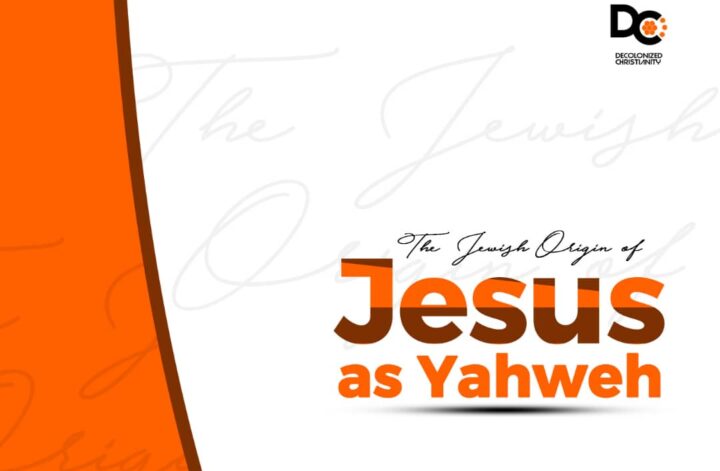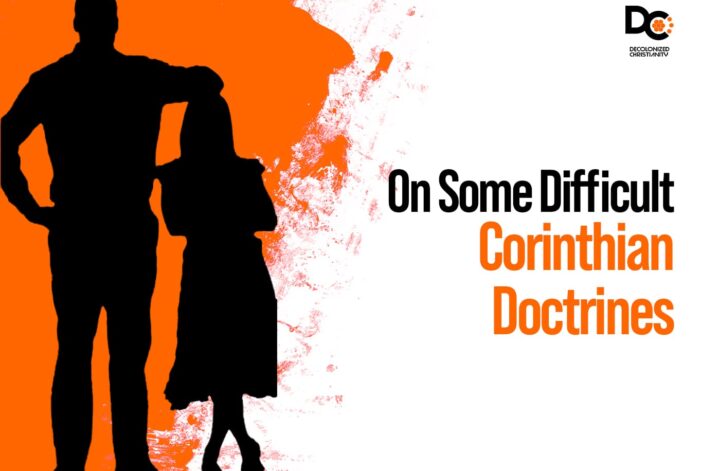In this piece, we continue to look at problematic passages. We look at some passages concerning the death of the Messiah and those involving Esau and Jacob.
5. Prophecies concerning the death of the Messiah
Perhaps no verse of scripture does better in bringing to the fore how early disciples understood the chain of events surrounding the death and resurrection of Jesus than Acts 2:23,
“This man was handed over to you by God’s deliberate plan and foreknowledge; and you, with the help of wicked men, put him to death by nailing him to the cross.”
Peter here boldly asserts that God is not caught unawares. He declares that God had foreknowledge and a plan. A deterministic reading says that God’s foreknowledge (and plan) involved causing everything from Jesus’ birth to his crucifixion. If this were the case, then that moral pronouncement, “wicked men,” has no meaning—since it would be God who would make the men wicked enough to kill Jesus. Peter boldly claims that the people were guilty of killing the messiah. But a robot cannot be guilty of doing what it is programmed to do, just as an experienced US Navy SEALS sniper’s bullet cannot be guilty of killing. The blames squarely lie with the programmer and the sniper. Besides, there is another problem with this reading. It does not seem to allow Jesus much choice in the matter. It makes Jesus appear more like a robot doomed to death than a lamb choosing to die. Jesus teaches that he voluntarily gives up his life (John 10:18) long before his death. I do not think Jesus’ life’s compliance to prophecies is as a robot, which has no choice. Instead, I think he uses his will to submit to the will of his Father. Hence, I do not think a fatalistic reading is correct. Using the alternative approach to understanding divine foreknowledge, one can say the divine plan was for Jesus to redeem humanity (as a qualifying ransom after the first Adam’s fall), and the foreknowledge is one devoid of causation. Put differently, it was the plan that Jesus would willingly offer himself as an atoning sacrifice. This being the case, he did not resist his arrest (see John 18:10-11); he could have disrupted the arrest by asking for an angelic army, for instance (see Matthew 26:53-54). However, the responsibility of killing Jesus, an act which God foreknew, squarely lies with the killers. God did not cause them to kill Jesus. The killers freely chose so to do. When Paul writes in 1 Corinthians 2:8 that, “None of the rulers of this age understood it, for if they had, they would not have crucified the Lord of glory,” he seems to say that the killers could have done otherwise with more information or knowledge. They were free to choose differently, if they had wanted to do so. If they had chosen not to crucify the Lord of glory, then the prophecies concerning the Messiah would have been different.
6. Prophecy concerning Esau and Jacob: the older shall serve the younger
This is another passage of scripture susceptible to a fatalistic reading. Those favouring a deterministic reading claim that God sovereignly wills that Esau will serve Jacob. They typically reference Romans 9 where Paul writes:
“Yet, before the twins were born or had done anything good or bad–in order that God’s purpose in election might stand: not by works but by him who calls–she was told, ‘The older will serve the younger.’” (11-12 NIV)
Considering that Paul wrote to people familiar with the Hebrew text in question, maybe he did not see the need to supply extra background information with his quotation. Invariably, it is noteworthy that the statement, “the older will serve the younger” does not contextually refer to individuals at all but nations. Here is what the prophecy says in the original passage:
“The Lord said to her, ‘Two nations are in your womb, and two peoples from within you will be separated; one people will be stronger than the other, and the elder will serve the younger.’” Gen. 25:23 NIVUK.
The election that Paul talks about concerns a people group God chose for his purpose, whatever that purpose is. It should be noted, however, that this election cannot be predestination for salvation for two reasons. First, most of the descendants of Jacob, the famous “children of Israel,” perished in the wilderness for their stubborn ways. So, they could not have been elected for salvation only for them to perish later. Second, God also blessed Esau (Genesis 33:9). In fact, at no time in his recorded lifetime did Esau serve Jacob. So, we see that the passage teaches that God acts in human affairs and direct history specifically in conformity with his purpose. But he does this in a way that does not override human free will.



